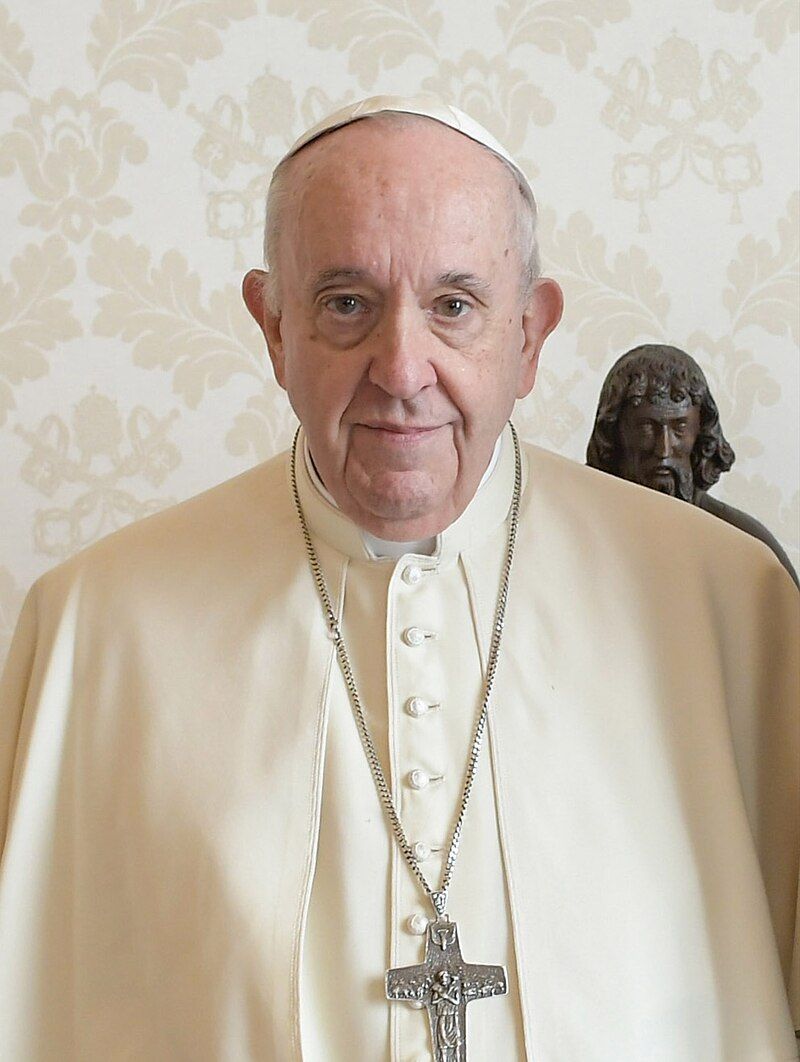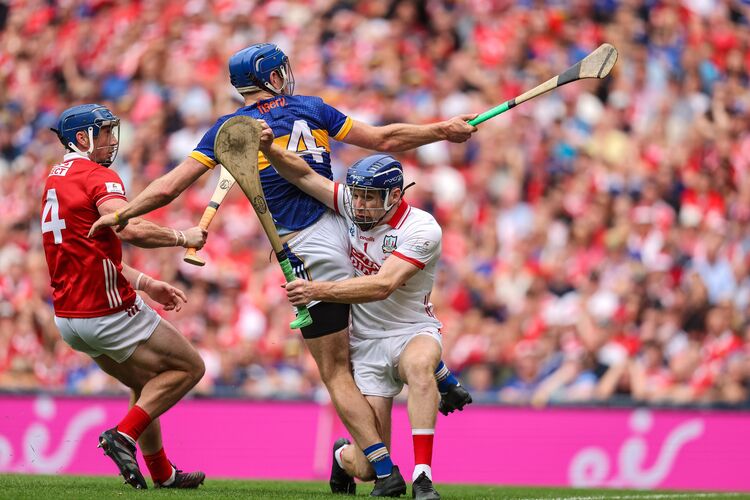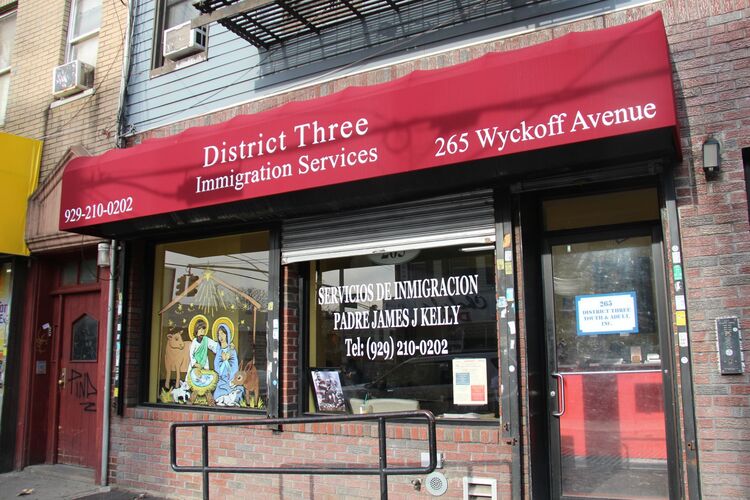This is the final column submitted by Gerry O'Shea who passed away last month after a short illness. Over the course of many years Gerry enlivened the pages of the Irish Echo by way of his columns and letter. We publish this, his final word, as a tribute to his memory.
In a pre-Christmas address to a gathering of theologians at the Vatican, Pope Francis spoke about the importance of their educational role in exploring the complex relationships between God and his creation. He urged the assembled scholars to steer clear of esoteric ruminations and concentrate on making their findings accessible to all.
He used the metaphor of light to illustrate how theology functions in the world, pointing out that it makes things appear without showing itself. “It works quietly and humbly so that the light of the Gospel can emerge.”
Francis also stressed the need for more women theologians, proclaiming that, “There are things that only women understand, and theology needs their contribution. An all-male theology is an incomplete theology. We still have a long way to go in this direction.”
The place of women in the Catholic Church presents the most formidable challenge facing the Vatican leaders. Every poll and study shows that most Catholics in Western countries want their church to modernize and open all leadership doors to women.
Pope Benedict.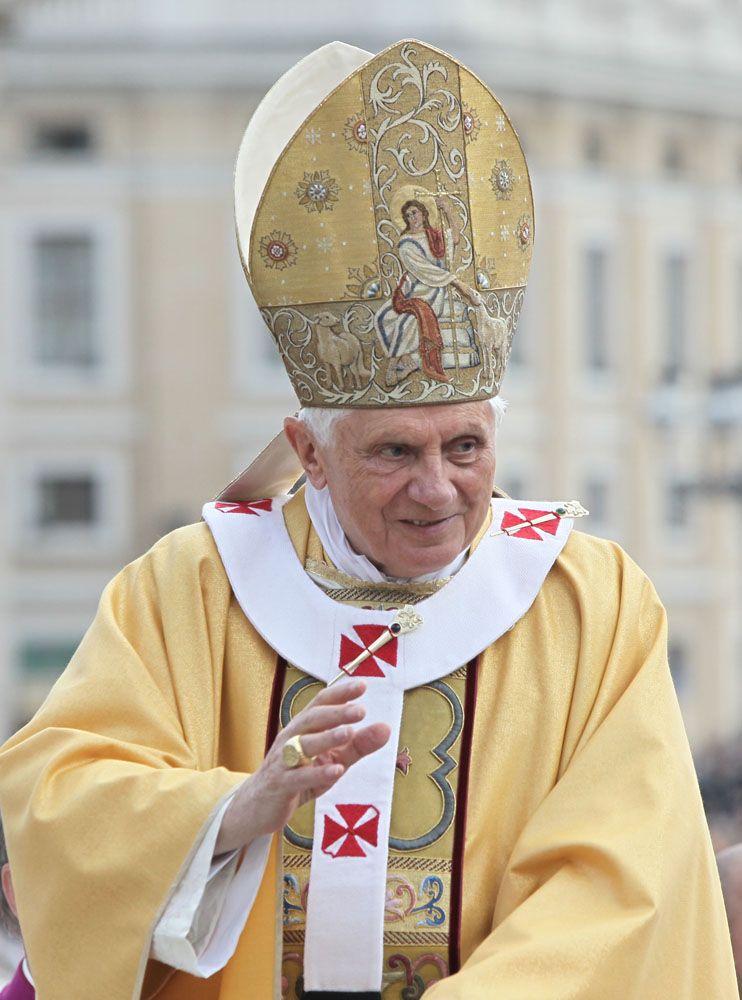
Admitting them to the diaconate would be an important start, but Francis seems to be on the fence about this crucial issue. From a progressive perspective, his failure so far in this vital area besmirches his mostly positive pontificate.
While he seems to be wavering on opening the diaconate to women, surprisingly, he has closed the door completely on ending mandatory celibacy for priests while he is in charge in the Vatican. The idea that priests would function better outside of marriage goes back to the 11th century and Pope Gregory VII, who faced issues of exceptional corruption and debauchery among the clergy. His action forbidding the joys of sexual love and intimate partnership to priests goes one better than Jesus Christ, who recruited married men to his leadership team.
Francis also pleaded with the assembled theologians to help people “rethink how to think.” This quizzical papal statement seems like an invitation to explore new horizons of possibility in moral decision-making, eschewing the simple catechism answers of the past.
He explains that “a wide heart is accompanied by wide-ranging imagination, whereas a shriveled, closed and mediocre way of thinking is hardly capable of generating creativity and courage.”
A depiction of Pope Gregory VII.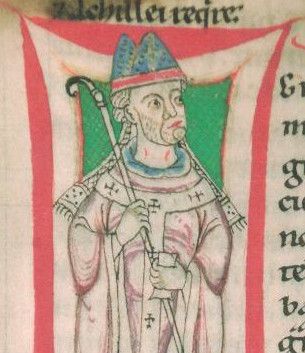
The Pope goes on to decry the manuals of theology studied during his seminary years, all closed, bookish museum pieces bereft of any challenge to make the reader think.
He labels such a limited approach as pseudo-theology, reducing church teaching to mere catechism memorization, or blind assent to propositional beliefs handed down from an ecclesiastical high.
I think of the doctrine of limbo, which found its way into every catechism as part of Catholic doctrine. The deductive reasoning that created limbo started with the statement that non-baptized children are excluded from heaven. The second leg of the syllogism asserted that God would not consign such babies to hell or purgatory. So, the laws of logic demand that a new location must be created where there is no punishment, but also no beatific vision. Hello Limbo!
This kind of thinking does not pass the layman’s understanding of the main spiritual insight of the New Testament, that we are dealing with a human being’s relationship with a loving and compassionate God, not complying with some metaphysical ruminations found in an arid textbook of scholastic philosophy.
Limbo is a prime example of bunkum theology, which Pope Benedict finally acknowledged by eliminating it from the list of church dogmas.
More and more people are exploring the moral dimension of their lives. This is a mature effort to sort out what is right and wrong about the dilemmas that everybody confronts. More people now also ask questions about the controversial ethics of public discourse on issues like climate change, poverty, and abortion.
Another critical factor influencing Pope Francis’ popularity, which has declined since the early halcyon days after his election as pontiff, shows in the level of support he receives from the Catholic faithful.
A recent Pew survey notes that Catholics who pray daily are more likely to hold positive views of the Pope, but they are also less likely to favor progressive reforms, such as allowing women to become priests, or recognizing same-sex marriages.
In Mexico, for instance, a mere 38% of those who attend weekly Mass think the church should allow same-sex marriages, compared to 52% of Catholics who go to church less frequently.
On the same line, it is noteworthy that devout Catholics voted overwhelmingly for the Republican candidate in the recent presidential election. Pope Francis condemned that party’s policies for immigrants and their espousal of the trickle-down theory, which enriches the affluent while shortchanging poor people.
It is highly ironic that a clear majority of church-attending Christians of all denominations favors the political party in America that propounds policies that cut programs for the poor and openly promotes tax policies enhancing the financial standing of the rich.
Pope Francis's final topic in his presentation to theologians touched on the promising role of public theology. He encouraged his followers to engage in various discussions and debates around important contemporary issues, especially the climate change crisis.

